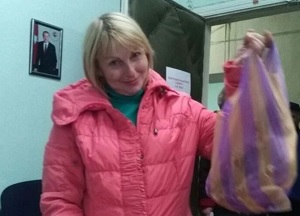A Spiritual Approach to Healing: Sacrifices and Vows for Genetic and Incurable Illnesses
The Importance of Vows in Islamic Tradition

A Spiritual Approach to Healing: Sacrifices and Vows for Genetic and Incurable Illnesses
In Anatolia, a beautiful tradition has persisted for generations. When someone buys a new home or car, or faces a significant challenge, they often make a vow and sacrifice an animal. This cultural practice, deeply rooted in faith, has been passed down through the ages. But experts suggest that unfulfilled vows and forgotten sacrifices could be linked to persistent challenges, including genetic illnesses.
The Qur’an offers guidance on vows and commitments. In Surah Al-Baqarah, Allah states:
"When his Lord tested Abraham with certain commands, and he fulfilled them, He said, 'I will make you a leader of people.' Abraham asked, 'And what about my offspring?' Allah replied, 'My covenant does not include the wrongdoers.'" (Al-Baqarah, 2:124)
This verse reminds us of the importance of fulfilling promises, not only to people but also to Allah. Those who encounter incurable illnesses or genetic conditions are encouraged not to lose hope. Even when medical paths seem closed, a spiritual remedy is available in the form of the Surah Al-Kawthar.
How to Follow This Spiritual Guide
The suggested spiritual method involves offering sacrifices and making vows, known as "adak." These can include animals like rams, goats, or roosters, depending on one’s financial situation. Here are key steps to consider:
- Intention is Crucial: Every sacrifice must begin with a pure intention, seeking Allah's pleasure.
- Fulfill Vows for Yourself and Your Lineage: Offer sacrifices to fulfill vows that you or your ancestors may have forgotten.
- Remember the Rights of Others: Sacrifices should also be made with the intention of making amends for any wrongs done to others.
The Importance of Vows in Islamic Tradition
In Islamic teaching, failing to keep a promise—especially a vow made to Allah—can have spiritual and even physical consequences. Sacrifices are a way to cleanse oneself and one’s lineage from such burdens. It is essential that sacrifices are handled properly, with the meat distributed to those in need and not consumed by the family.
Giving Charity as a Remedy
Charity, known as sadaqah, holds a significant place in Turkish and Islamic culture. It’s believed to protect from calamities and diseases. The act of feeding the hungry, comforting the orphans, and supporting those in distress can bring immense spiritual relief:
- Feed 100 poor people.
- Bring joy to children with gifts.
- Support disaster victims or build soup kitchens.
Even a smile or a kind word can be considered a form of charity. When facing seemingly incurable illnesses or life challenges, charity is seen as a powerful antidote to adversity.
Practical Advice for Resolving Life's Challenges
For those facing obstacles—whether it's difficulty in marriage, career setbacks, or other blockages—reading Surah Al-Kawthar and fulfilling promises through sacrifices can be effective. Offering a sacrifice on behalf of those you may have wronged or failed to compensate can help open doors and remove barriers.
Trust in Allah, Take Action, and Leave the Rest
As the saying goes, "Do good and cast it into the sea; if the fish don’t recognize it, the Creator surely will." Trust in Allah’s wisdom and mercy. He is always the helper of those in distress.
By blending cultural traditions with spiritual practices, individuals are encouraged to explore both physical and spiritual avenues for healing. These traditions, deeply rooted in faith, provide a sense of hope and guidance for overcoming life's challenges.






































